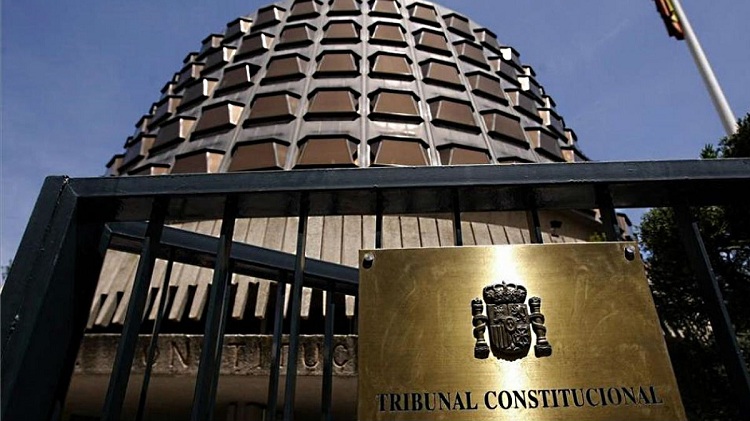Ángel Collado
Pedro Sánchez’s legislative offensive to secure control of the governing body of judges and the Constitutional Court is being put to the test this week by the Constitutional Court itself, at the behest of the main opposition party, the PP, in its attempt to put the brakes on the government’s plans.
The legal reforms for the benefit of the government and its partners convicted of sedition and embezzlement have already passed the filter of the Congress, but they have to pass this Thursday through the plenary of the Senate, which gives the Court of Guarantees room to stop the government operation before its final validation by the Cortes.
The institutional conflict is served and amplified by the precautionary measures that the PP is requesting before the TC and by the reaction of Sanchez’s Executive to this unexpected obstacle: questioning the legitimacy of the arbitration body and threatening its members in case they dare to paralyse the proceedings.
The mere convening of the plenary session of the Constitutional Court for this Monday provoked the wrath of the government and its allies, who responded in a coordinated manner, from Sánchez himself to the spokesperson of Bildu (a formation inherited from ETA’s political wing), with attacks on the ‘conservative’ judges, the Popular Party and the media.
The accusations of coup-plotting, conspiracy or going against democracy directed at the ‘political, judicial and media right’ (terms used by the prime minister) are based on a concept hitherto reserved in Spain for the extreme left (Podemos) and the Catalan separatist parties in promoting their attempt against national unity: the idea that parliamentary majorities are above the law and the constitutional order. Nor do they have to follow the established procedures for changing the rules.
The Constitution does not endorse populist theories on the matter and article 9.1 makes it clear that “citizens and public authorities are subject to the Constitution and the rest of the legal system”.
Sánchez has skipped all the usual procedures for reforming laws, from the prior reports by the Council of State and the General Council of the Judiciary to the subsequent debates and amendment deadlines in the Chambers, in order to fast-track the accounts with Justice of his separatist allies convicted of sedition and embezzlement.
In the same breath, it has proposed changing the qualified majorities for appointments to the governing body of judges, all of which it intends to dispatch in less than two weeks, on the eve of Christmas. This avoids the full three months that the Cortes would have taken to approve the reforms through the normal parliamentary route.
Sánchez is in a hurry and wants to distance his favours to the pro-independence supporters and the row over the Justice Department’s control of the date of the next municipal and regional elections, set for May next year.
Without going into the heart of the matter, the constitutionality of the Government’s legislative offensive, the TC could admit the PP’s appeal and issue the very precautionary measures that would put a stop to Sánchez’s haste, even if it meant postponing the corresponding Senate plenary session.
To avoid this setback for the government, five of the court’s magistrates headed by Cándido Conde-Pumpido, the Government’s favourite, threatened to boycott the court’s meeting last week, arguing that they needed more time to study the PP’s petition. It was postponed until Monday, while the government took advantage of the time to publicly and privately put pressure on the other six members of the TC.
Conde-Pumpido is set to be the next president of the Constitutional Court once the two magistrates who are to be appointed directly by the Executive enter it: the former Minister of Justice of Sánchez, Juan Carlos Campo, and the former high-ranking official of the Presidency of the same cabinet, Laura Díez. Both are proven Sanchez loyalists and, together with the entry of the two representatives to be appointed to the CGPJ, could give the head of the Executive effective control of the body in charge of ruling on his laws and legal shortcuts to satisfy the pro-independence supporters.
The entire legislative offensive that the opposition denounces as an ‘assault on justice’ and considers aimed at liquidating the division of powers and counterweights of the current democratic regime leads to Sánchez’s objective of guaranteeing himself a TC in line with his objectives, the first of which is to remain in power with the support of his partners.







